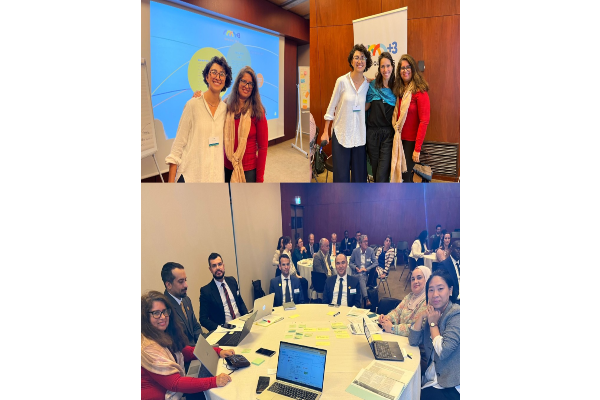
8 October 2024 was the final day of the 8th international meeting on triangular cooperation organised by Portugal, the OECD DAC and Brazilian cooperation support for G20 trilateral cooperation.
The meeting highlighted a number of key themes and discussions on global triangular cooperation, including the day’s plenary session on triangular cooperation with Asian partners, which explored the history and innovations of triangular cooperation in Asia since the 1970s, including pioneering partnerships between Thailand, Laos and Japan. Participants also discussed Asia’s growing role in innovation sharing and inter-regional exchanges, particularly in areas such as agriculture and the fight against climate change.
Alongside several specialists, including Geovanna ZOCCAL (OECD), Abdullah F. ALNUSALNED (Saudi Fund for Development) André GALVAO (Brazilian Cooperation Agency) as well as colleagues from JICA and the Japan Cooperation Agency, Anita Amorim, Head of the Emerging, South-South and Special Partnerships Unit at the International Labour Organisation (ILO), spoke on the challenges of integrating the private sector into triangular cooperation at the session on working across organisational cultures in triangular partnerships facilitated by Bernadete VEGA SANCHEZ (SEGIB). She highlighted the importance of effective engagement between the private and philanthropic sectors and presented strategies to make these partnerships more attractive for the future, while exploring the factors that make them successful.
Other sessions took place on 8 October, including one on the use of artificial intelligence in triangular partnerships to improve project management, coordination and communication between partners. JICA, USAID, the OECD, the Camoes Institute, ISDB, Qatar, Argentina, Peru, Colombia and Brazilian cooperation agencies also shared their experiences.
These two-day sessions provided an opportunity to reflect on the future of triangular cooperation at strategic, systemic and operational levels, with a focus on multi-actor partnerships, reducing inequalities and combating poverty. Participants also shared ideas for strengthening systems and strategies to maximise the local impact of these partnerships, with an eye to the post-2030 challenges.
For more information about the ILO’s participation in the meeting, please contact Anita Amorim, ILO PARTNERSHIPS

